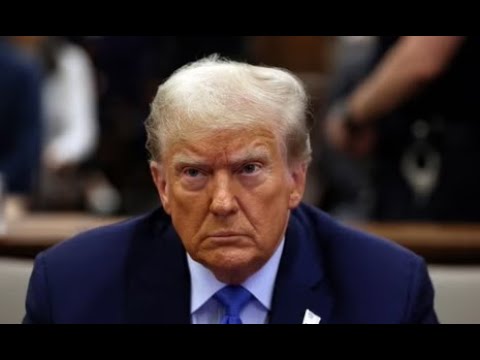In a crucial legal ruling out of California, Democrats have clinched a significant victory regarding former President Donald Trump’s controversial deployment of troops during social unrest. This landmark decision has sparked discussions about the implications of executive authority and civil liberties in the United States.
The court case, known as Newsom v. Trump, centered on accusations that Trump’s troop deployments in major urban centers violated state governance and posed a threat to democratic norms. During a recent podcast, political commentator Brian Teller Cohen highlighted this case as a key focal point in a series of judicial battles influencing the presidential election landscape.
Cohen emphasized the potential ramifications of Trump’s actions, referring to them as an attempt to “flex his autocratic muscles.” The former president’s strategy involves deploying military forces that are answerable directly to him, a tactic he has previously utilized in cities such as Los Angeles and Washington D.C. Cohen portrayed this as not only a concerning move but as an orchestrated plan to normalize the presence of federal troops in civilian areas, framing it as a tool for political leverage.
“What better way to exert influence than by sending in a police force that is effectively under his control?” Cohen asked rhetorically. “If he wins the election, the muscle-flexing might not appear as anti-democratic, simply through desensitization of the public to such measures.” Such claims reiterate fears that Trump seeks to diminish the boundaries between civilian governance and military authority. Cohen also recalled that in the wake of the 2020 elections, Trump attempted to seize voting machines and block the certification of election results, leading to a crisis that culminated in the insurrection at the U.S. Capitol.
The implications of this ruling extend beyond California, potentially influencing similar challenges in other states. New York, Chicago, and New Orleans are among the cities where Trump’s threats of troop deployments have raised alarms, generating further calls for accountability. A ruling that upholds the limits of executive powers could set a significant precedent in the ongoing discourse surrounding state rights vs. federal intervention.
The historical context of military involvement in civilian matters adds an additional layer of complexity to this legal battle. The Posse Comitatus Act of 1878 significantly limits the deployment of U.S. military forces for domestic law enforcement purposes, setting important legal boundaries intended to protect civil liberties. Legal experts are now analyzing how this case will shape future engagements and the balance of power between state and federal authorities.
As Democrats celebrate this victory, they remain vigilant about ongoing threats to democratic governance. The broader ramifications of this court ruling echo through the political spectrum, particularly as the nation approaches another presidential election cycle. Parties on both sides are increasingly keenly aware of the role judicial decisions play in their electoral strategies. With mounting tensions surrounding Trump’s actions and rhetoric, the resolution of the Newsom v. Trump case may herald a pivotal moment in the ongoing national conversation regarding executive power and civil rights.
In conclusion, as the landscape of American politics continues to evolve, the significance of this legal decision cannot be understated. It not only reflects current challenges in governance but also shapes the future of political engagement in a deeply divided nation.



